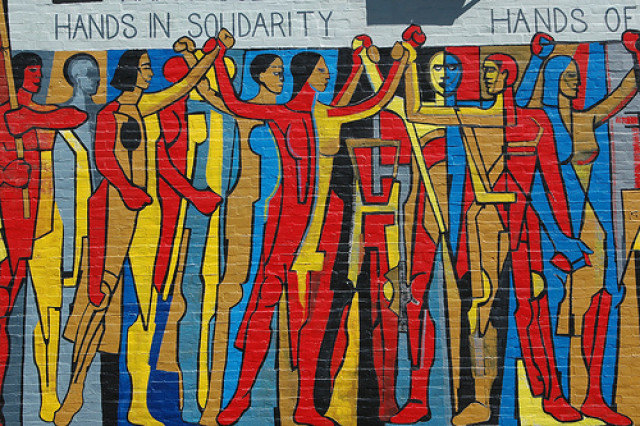 Image Courtesy: Discover Society
Image Courtesy: Discover Society
Intersectionality framework had its beginnings in Black feminist thought developing as critical social theory and which looked at lives of women ‘socialized out of existence’ but also at social identities which emerged from multiple yet mutually constituted matrix of relations organized around inequitable power relations and distributions. An intersectional approach considers peoples’ overlapping identities and allows the unravelling of multiple points and axes of prejudice and oppression that contribute to everyday experience of the marginalized gender. Drawing upon this foundational approach, and drawing from growing feminist studies on intersectionalities, Dalit feminists in India, for example, debated that ‘Dalit women speak differently’ and framed their struggles as being informed by caste, class and gender and initially terming it as ‘triple burden’. Increasingly drawing from such studies, it was evident that intersectionality unravels layers of an individual’s identity which was not possible using a single primary marker and as in the case of Shah Bano, her intersecting identity of being a Muslim and a woman was at conflict. Her oppression arose from the intersection of religion and patriarchy, facing opposition from within the community for challenging the Muslim Personal Law (Shariat) Act,1937. More recently we are witness to women across religions challenging patriarchal religious orthodoxy, be it the nuns or women calling for entry into temples, or those fighting Genital Mutilation (Khatna) within a religious sect in India. In a context where religion cannot be understood through a single lens and in which identities are complex, the conference will explore the dynamic relations between gender, religion and other identities as an important dimension of people’s constructed lives in general and women’s in particular. It will look into theoretical and empirical research on religion and intersectionality and its effects on the politics of inclusion and exclusion. In this context, contemporary popular religions and spirituality (urban popular religions, folk religions etc) in the context of multiple modernities, will also be explored. The conference will also look at how intersectional inequality systems are challenged by countercultural discourses and social movements discussing power, violence, justice as well as how inequality systems are addressed at local governance levels. This could bring in new methodologies and lead to newer understanding of agency.
Intersectional analysis has shown that violence does not take place in isolation and that there are intersecting factors such as identities and institutions that lead to gender-based violence. We note how caste, religion varied forms of patriarchies intersect as witnessed in the recent spate of violence against inter-caste marriages in south Indian states in particular or the resisting dominant caste sexual harassment leading to beheading of a Dalit girl, for example.
The conference will also look at new paths of activism of women, particularly young women (urban), Dalit, Muslim and Adivasi groups, LGBTIQUE groups, disability groups. As this is a southern regional conference, we cannot but have a special session on the recent natural disasters the region faced and examine the gender dimensions of the same in terms of research, program, law, policy. The sub-themes are as follows.
1. Gender, Religion, Culture: Patriarchies and Power
2. Interrogating Violence and Honour in the inter-caste/ inter-community relations
3. Contemporary challenges – Women’s Studies & Women’s Studies Centres
4. New research in gender studies – Young scholars from varied disciplines
5. New Modes of Activism: Remaking the Gender Order (Dalit, Adivasi, Muslim women, LGBTIQUE,
Disability rights, Urban groups, labour unions)
6. Addressing gender inequalities in local governance & decentralisation
7. Plenary – Gender Dimensions in Natural Disaster: Programme, Policy, Law: South India focus




